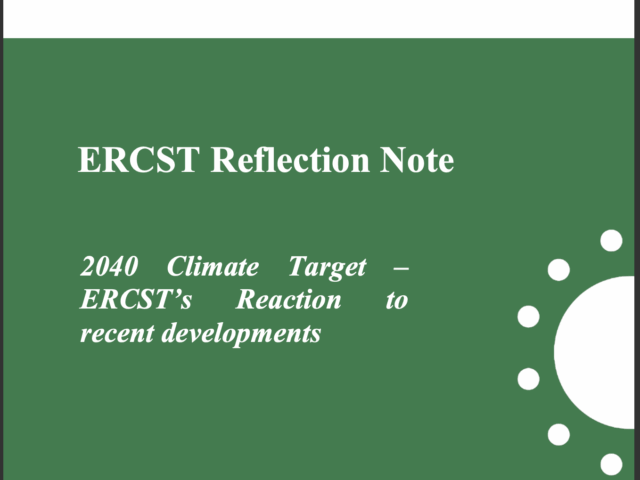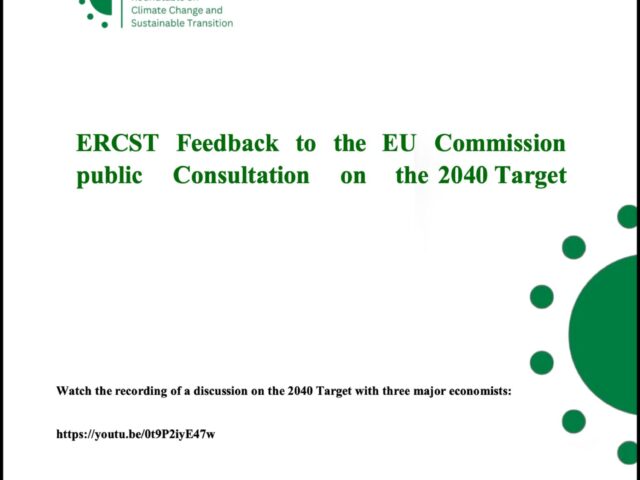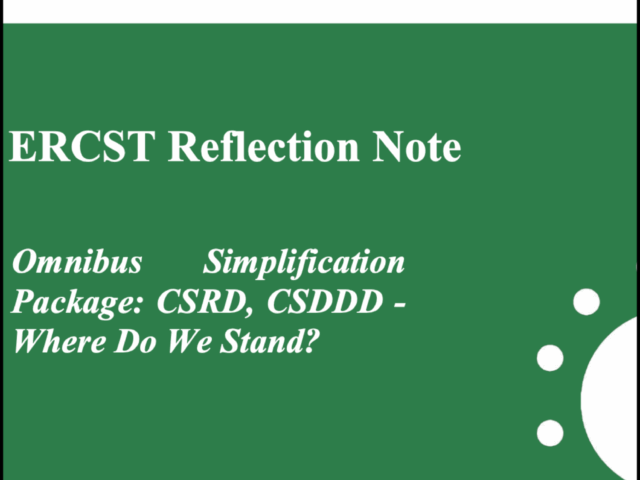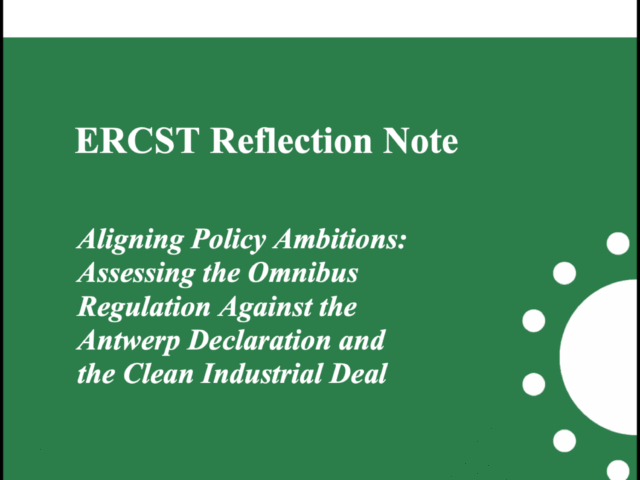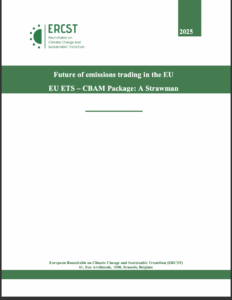ERCST sees its role as a convener of different stakeholders involved in the Sustainable Finance (SF) debate. Through original intellectual input, ERCST aims at making the EU SF policy process practical to relevant actors, as well as providing recommendations on how to improve its usability and international attractiveness. Below the 3 main working strands:
- The EU Taxonomy Regulation
- The Renewed Sustainable Finance Strategy
- The EU and global SF agendas
ERCST started its SF analysis with a deep-dive on the Taxonomy Regulation (TR). ERCST identified 2 original sins in its initial design. First, TR only describes the end point in a piece of paper, without assessing the cost-effectiveness to reach it. Second, TR did not build an enabling environment capable to send the right incentives in order to start the route towards climate neutrality. For better analysing the Taxonomy Regulation and for ensuring a correct shaping exercise and update in the coming period, ERCST identified 3 questions to tackle (to which intends to provide a set of recommendations):
- How to better define the EU Taxonomy’s scope and make it more practical and usable to enhance the transition?
- How to make the EU Taxonomy work, together with other policies?
- How to make the EU Taxonomy an international tool?
ERCST intends to put into context a selected set of SF policy initiatives. It will do so by identifying synergies and overlaps among the EU SF policy architecture as a whole (described in the Renewed SF Strategy) and other key EU environmental policy strands (such as the Emission Trading System (ETS), the Carbon Border Adjustment Mechanism (CBAM), the Energy Taxation Directive (ETD), the Recovery and Resilience Facility (RRF), etc.)
Finance has an international nature. The EU is being a frontrunner in designing the SF pathway. However, there will be the need of global cooperation for streamlining the different ESG standards. ERCST intends to benchmark the EU SF agenda with other international approaches, as well as monitoring the dialogues among relevant actors, such as the Member State Expert Group on SF (MSEG) and the International Platform on SF (IPSF).
RECENT PUBLICATIONS
2040 Climate Target – ERCST’s Reaction to recent developments
Author(s): Andrei Marcu, Chiara CavalleraERCST Feedback to the European Commission on the 2040 Climate Target
Author(s): Andrei MarcuERCST Reflection Note: Omnibus Simplification Package – Where do we stand?
Author(s): Andrei Marcu, Chiara CavalleraERCST Reflection Note: Aligning Policy Ambitions: Assessing the Omnibus Regulation Against the Antwerp Declaration and the Clean Industrial Deal
Author(s): Andrei Marcu, Chiara Cavallera, Ana RuizRECENT AND UPCOMING EVENTS
How to make the EU Taxonomy an international tool?
November 23 @ 13:30 - 15:45EU Taxonomy: extension framework and interplay with transition pathways
January 26 @ 14:00 - 16:00EU Taxonomy: impacts on other policies
March 11 @ 10:00 - 12:00Nuclear energy and gas in the EU Taxonomy
June 20 @ 14:00 - 16:00Green bonds – State of play. What is in it for transition?
September 29 @ 10:00 - 12:00The matrix: sustainable reporting requirements
October 26 @ 10:00 - 12:00The transition plans: beyond sustainable finance?
November 30 @ 10:00 - 12:00

